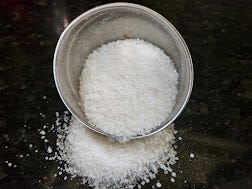Fake news is going to kill us all.
Well, it certainly seems that it could. The pandemic revealed a lot of things about humanity and one of them was that, had this been a killer like the Bubonic plague, or even the so-named Spanish flu, many more of us would be dead right now. I really don’t think many people acted with outright malice but history will, in all likelihood, reveal that, alarmist or denier, no one got it quite right. We heard a lot of BS and, should this happen again in our lifetimes, the costs could be a great deal higher because a significant percentage of the population will refuse to cooperate, no matter the cost.
Believing in BS is deadly but we do it all the time.
We buy into the latest stuff sold to us by industries that love to exploit our insecurities. We parrot news that is heavily curated by the biased algorithms we ourselves create by our browsing and purchasing history. Modern medicine can do miraculous things, but when it can’t save us from something terrible we leap on promises from charlatans with their raw juice diets or worse. We do these things all the time and probably don’t ever realize how often.
I know all of this. I’m a critical thinker. But yet this week I spilled salt and threw a pinch over my left shoulder. It seems I believe in BS too.
One of the most important books I read in university was How We Know What Isn’t So (no, this is not an affiliate link) in a first year philosophy course. A book like this ought to be mandatory reading at the high school level since understanding cognitive bias is far more useful than four variable algebra.
The TL;DR is that the human mind is very smart. We are smart because we see patterns, and that ability often leads us to see things that aren’t there. I’ve written about this exact thing before when I’ve talked about heuristics.
But what, you surely are asking, what is the heck this has to do with cooking and why on earth am I going on about philosophy again?
The kitchen is one of the few places that many of us confront the scientific reality of the world. We denature protein with heat. We mix the acid and the alkaline. We coax and nurture yeast and let things ferment. It’s one of the few places where we confront the line between the science and the divine unknown. We do a lot of things because that’s how we were taught to do them, even if we don’t always understand them. We depend on a little magic for our dinner.
Throwing a pinch of salt over the left shoulder is a superstition that may as well be as old as time. While nothing is cheap these days, salt is, relative to its historical price, quite inexpensive today. It was even taxed as luxury in the past. In much of history to waste salt was considered a sin because of its value and because of its connection to friendship and the mystical. To throw a pinch of salt over the left side is to appease the Devil (who of course resides over our sinister shoulder). Judas was said to have spilled the salt at the Last Supper (according to Da Vinci at least).
But why is this okay and other superstitions, magical beliefs, and cognitive biases not okay?
A pinch of salt over the shoulder harms no one. You will sweep it up anyway. No one is the worse for it, and it may even make us feel a connection to something bigger than ourselves.
If a superstition makes us appreciative of our place in the universe, gives us a connection to our ancestors, and costs but a pinch of salt, then let us do it. But if it makes us disregard logical reality, start unresolvable arguments with our families, friends, and neighbours, or has the potential to harm or kill, we need to reconsider our motives.
There are many problems that modern science can’t resolve, or we just can’t quite comprehend as yet. When the sum total of almost all human knowledge is available online its tempting to think that we can know everything. But the sum total of all human wishful thinking, magical thinking, and superstition is out there too and it could kill us all in the end.
As human beings we are desperate for connection and we lost a great deal of even the most basic human rituals - birthdays, weddings, funerals - during COVID and Western culture has so few of them to start with. No wonder we go looking for the divine in all the wrong places.
When you are cooking dinner this week, remember that cooking and food is are some our most everyday connections to both the rational and the divine. And if you spill some salt throw a pinch over your left shoulder. It won’t do any harm, and it might just keep some evil at bay.

